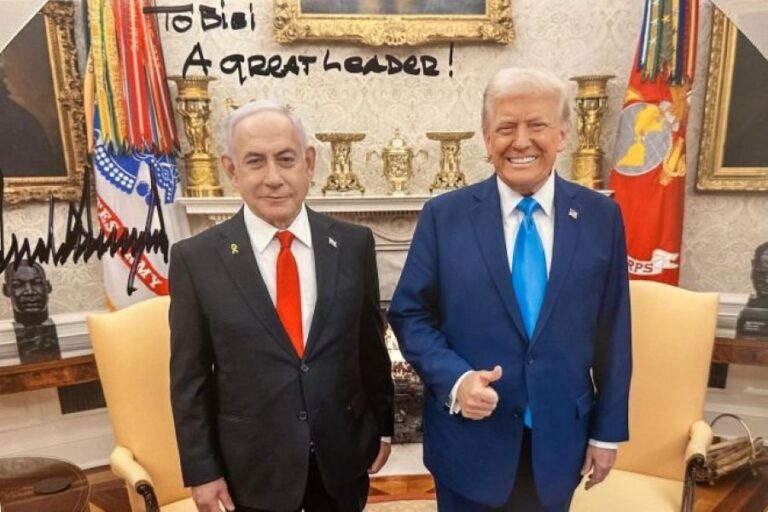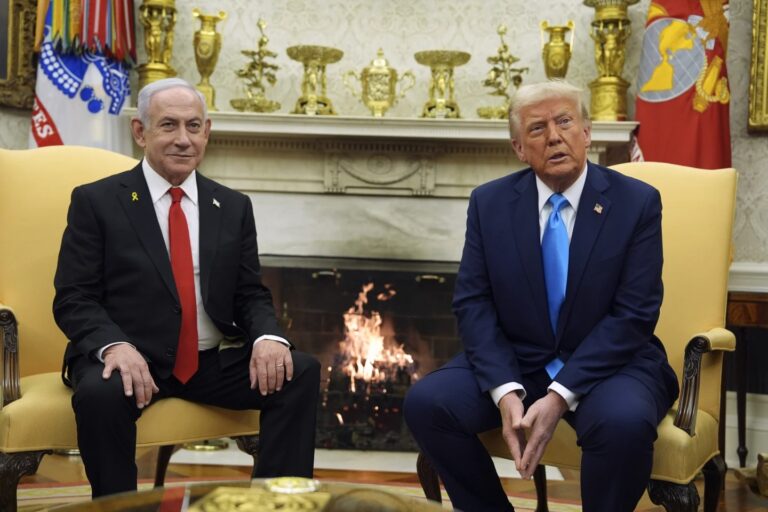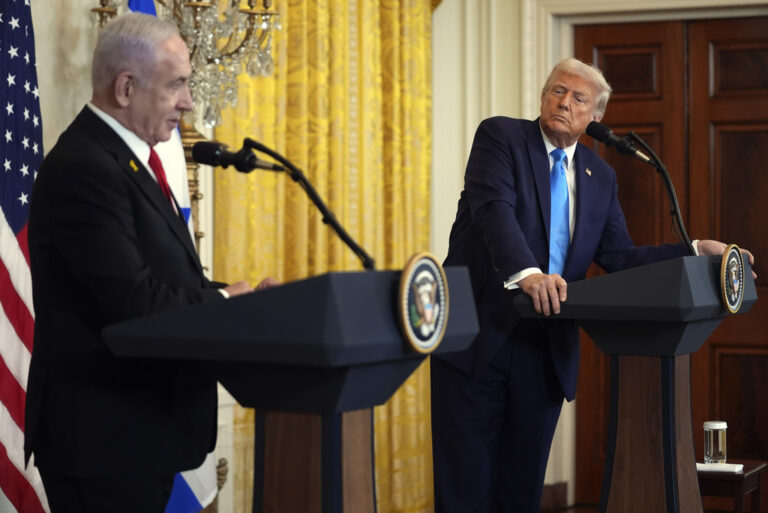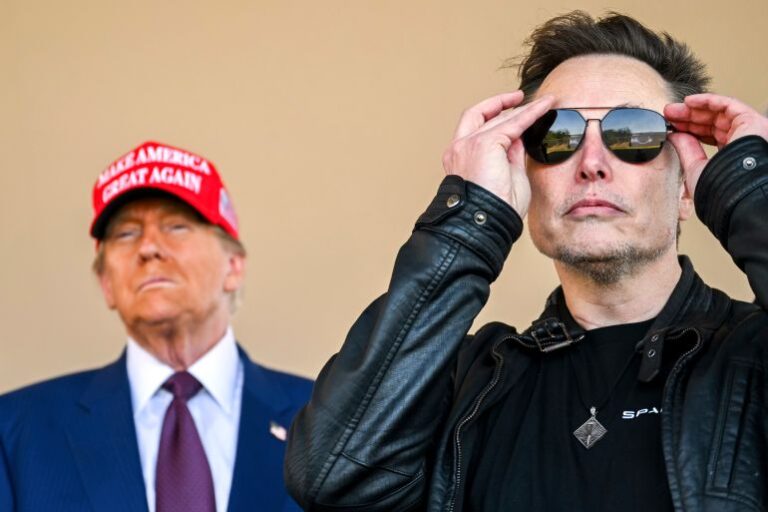When Attorney General Jeff Sessions told local police departments they could once again have access to free grenade launchers and large-caliber weapons cast off from the U.S. military, law enforcement groups checked another item off their wish lists.
Seven months into President Donald Trump’s administration, police groups are reveling in what they see as newfound support from the federal government. The administration, which touts a “law and order” agenda, has revived a controversial program that lets local police seize cash and property with federal help and pulled back on federal scrutiny of local law enforcement.
Sessions, who has overseen most of the administration’s law enforcement initiatives, views federal support of local police as key to driving down recent spikes in violence in some cities, a top priority of the Justice Department. But critics say Trump’s recent moves — including his pardoning of former Arizona sheriff Joe Arpaio, who was found guilty of contempt of court for disobeying a federal order to stop traffic patrols that targeted immigrants — display a troubling lack of skepticism about police power.
And civil rights advocates, who found a rare ally in the Obama Justice Department, say they are left wondering how the administration will side if another racially charged confrontation becomes a flashpoint in the debate over police treatment of minorities.
“When the AG’s office sends messages the way this AG has, it condones the actions of law enforcement,” interim NAACP President Derrick Johnson said. “We see no evidence of his interest in holding police officers accountable.”
Some in law enforcement grew frustrated with what they saw a lack of support for local police from the Obama administration. Former Attorney General Eric Holder, though embraced by black Americans, alienated some in law enforcement when he publicly described his own tense encounters with police as a black man.
Trump seized on that concern in wooing political support from police unions during the presidential campaign, promising he would roll back Obama-era restrictions on law enforcement, including limits on access to military gear. That pledge earned him the support of the Fraternal Order of Police, the nation’s largest organization of rank-and-file officers.
Obama and Holder argued the armored cars and riot gear used in response to protests in Ferguson, Missouri, following the 2014 shooting death of 18-year-old Michael Brown made officers appear like an “occupying force.” But to Trump and Sessions, the armaments are among the kind of “lifesaving gear” that police need to do their jobs.
“We will not put superficial concerns above public safety,” Sessions told the cheering crowd Monday. “We will always seek to affirm the critical role of police offers in our society and we will not participate in anything that would give comfort to radicals who promote agendas that preach hostility rather than respect for police.”
James Pasco, senior adviser to the president of the Fraternal Order of Police, said the Trump administration’s approach is a refreshing change from what he saw as a “constant drumbeat of criticism and villainization of police officers” under the Obama administration.
“The mere fact that President Trump and the attorney general are so vocal and demonstrative of their support for police officers is a huge morale boost,” Pasco said.
Some law enforcement officials did criticize Trump earlier this month when he said police shouldn’t be “nice” to suspects by shielding their heads as they are lowered, handcuffed, into police cars. The acting head of the Drug Enforcement Administration sent an email to employees stressing the agency’s operating principles, which include rule of law, respect, compassion and integrity. And Sessions did not publicly endorse Trump’s comments.
But Trump and Sessions have largely been in lockstep in their focus on cracking down on crime and bolstering local police.
The attorney general has said he will “pull back” on court-enforceable improvement plans for police departments that were a hallmark of the Obama administration’s efforts to overhaul troubled agencies. He’s urged the nation’s federal prosecutors to seek the toughest charges against most crime suspects. And he told local police and sheriffs they can once again seize people’s property and cash with federal help, an initiative that helps departments pay for everything from drug dogs to overdose antidotes but was curtailed by his Democratic predecessors over concerns of abuse.
Through it all, Sessions has routinely sought input from groups like the National Sheriffs’ Association, which worked closely with him when he was an Alabama senator.
“This administration calls for advice. They sometimes take it and sometimes don’t, but they always tell you up front, this is where we are coming from,” executive director Jonathan F. Thompson said. Thompson said he’s conferred with Sessions on incarceration programs, the role of local police in immigration enforcement and the need for military gear.
“We’re in touch with him whenever we need to be,” Thompson said.
Leaders of the NAACP, who have long been skeptical of Sessions’ record on civil rights, say they don’t have the same frequent contact. They were encouraged when he met with them in his first weeks on the job to discuss their concerns, particularly in the areas of voting rights and policing. But his policy changes so far don’t align with the priorities they voiced, Johnson said.
“We have not received any response, to my knowledge, coming out of that meeting that would indicate he’s willing to consider an alternative point of view on the quality of policing in our communities,” Johnson said.
Vanita Gupta, who ran the Obama Justice Department’s civil rights division, said the Trump administration was “pandering to law enforcement” and using “much more divisive rhetoric than what I believe is productive for community-police relations.”
“It very much is an us-versus-them approach,” she said.
(AP)












One Response
Mmmmmmmmmm, grenade launchers.
Nothing to worry about – local police never use them against Jews.